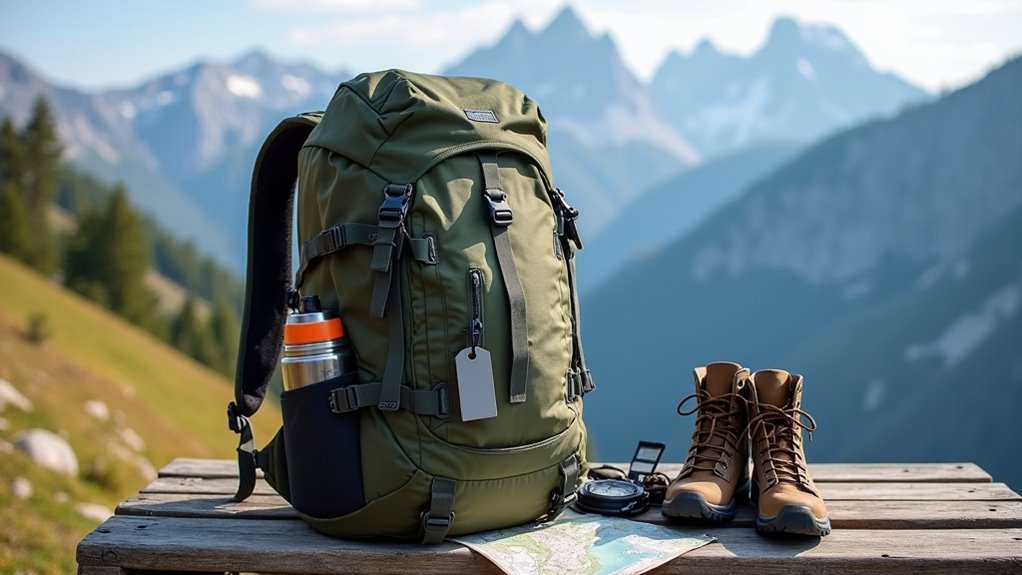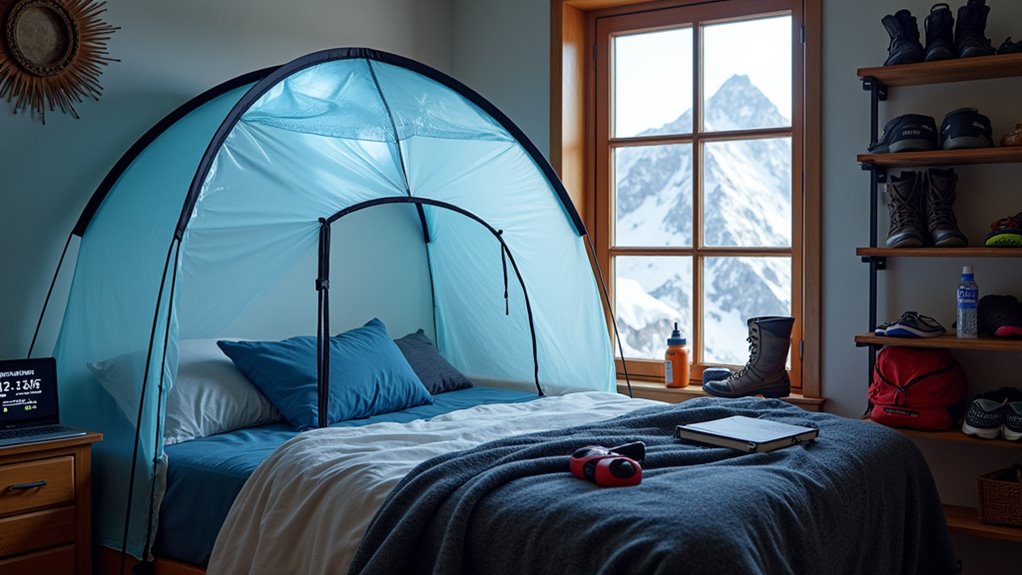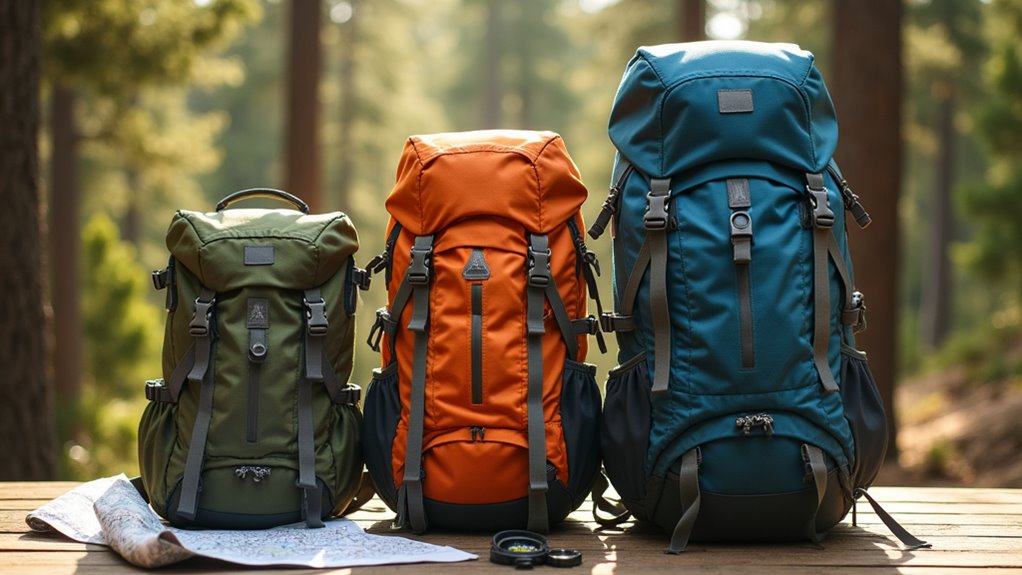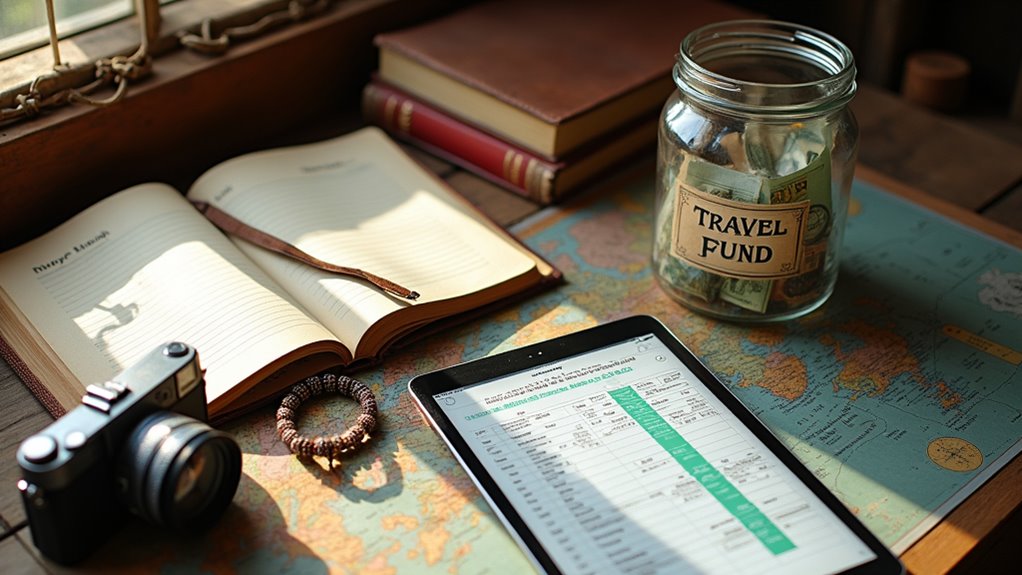Expect to pay between $100 and $300 for a backpack suited for backpacker travel if you want a reliable mix of durability, comfort, and features. Backpacks in this range, especially from brands like Osprey and Deuter, typically offer quality materials, supportive frames, and practical layouts for trips ranging from city hopping to multi-day treks. Choosing the right capacity—usually 40 to 60 liters for extended travel—ensures your pack meets airline or trail requirements. There are important factors you’ll want to evaluate before making your final choice.
When planning for travel, understanding backpack cost is essential because the price can vary widely based on several key factors. You’ll find that the material, size, brand, features, and even the potential for customization all play a significant role in determining how much you should expect to pay.
Lightweight backpacks, especially those under 3 pounds, are suitable for long-distance travel but may come at a higher price if crafted from advanced materials like Dyneema or high-denier nylon, which also boost durability and water resistance. If you’re looking at size, backpacks typically range from 20 to 80 liters, with 40-60 liters being the standard for longer trips. Larger capacities generally mean a higher price, as do features such as padded hip and chest belts, multiple compartments, and weather-sealed zippers. Initial investment for gear can range quite a bit, with some travelers spending between $300 to $1000 for a full kit, especially when opting for higher-end or ultralight options.
Lightweight, durable backpacks with advanced materials and larger capacities often come with a higher price but offer added comfort and organization.
Entry-level backpacks can be found for under $50, but these often lack the durability and comfort features required for extended travel. You might get basic functionality, but likely at the expense of long-term reliability and support. Accommodation options such as hostels or guesthouses are popular among backpackers, which means your backpack should also be suitable for shared and sometimes crowded environments.
If you increase your budget to the $50-$150 range, you’ll access mid-range backpacks that offer improved materials, better construction, and added features like organizational pockets or compatible packing cubes. Shopping during sales or choosing less well-known brands can help reduce costs without a significant drop in quality. Used gear is another option, though it might come with signs of wear and limited or no warranty. Investing in a quality backpack should be prioritized as it’s one of the essential items every backpacker needs for a successful adventure.
For high-end options, expect to pay anywhere from $200 to over $400, especially if you opt for premium brands like Osprey or Arc’teryx. These brands provide advanced features, enhanced durability, and sometimes even custom fit options for maximum comfort.
Travel-specific features, such as cabin-friendly dimensions under 40 liters, TSA-approved laptop compartments, and weather sealing, can add to the cost but improve convenience and protection during travel.
Ultimately, your backpack cost should reflect your primary travel needs, expected duration, and the features you prioritize for comfort, organization, and gear protection.









